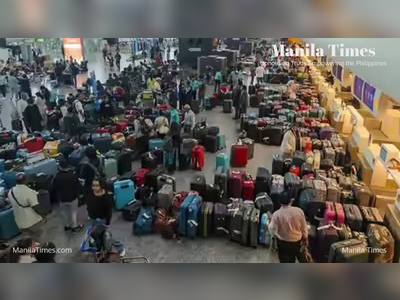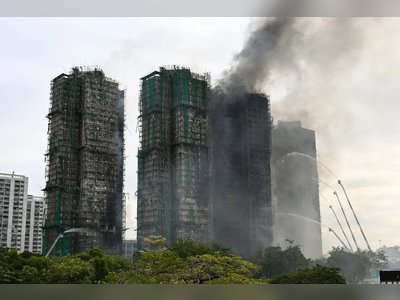Manila Times
Upholding Truth. Empowering the Philippines
Sunday, Dec 07, 2025
The Nation's Story is Told with Honor
Foreign-Worker Housing Project in Kutchan Polarises Japan’s Demographic Debate
Plan for 1,200 seasonal workers’ residences in ski resort town ignites a standoff over identity, inclusion, and survival
A plan to build housing for up to twelve hundred seasonal workers in Kutchan, a ski town in northern Japan, has triggered sharp opposition from local residents and opened a broader debate over how to integrate foreign labor into a society wary of change.
The proposed site for the large residential complex spans approximately 2.7 hectares of farmland near central Kutchan, about seven hundred meters southeast of JR Kutchan station.
Developers envisage roughly thirty apartment blocks, two to three stories high, to house workers needed to staff the region’s resorts, hotels, and construction sites.
At peak season, these residents would represent nearly ten percent of the town’s permanent population.
The project is being advanced by Niseido Services, a local real estate firm backed by a Singaporean investment group.
The developer has sought to convert the farmland to residential use in order to meet acute housing demand for seasonal labor.
([JAPAN Forward][1])
In reaction, local opposition has intensified.
A petition against the housing complex has collected over 4,000 signatures.
Residents have voiced concerns over safety, infrastructure strain, disruption of local social order, noise, and traffic.
Some argue that the sudden influx of non-local workers threatens the character of their community.
([Powderlife][2]) The town’s agricultural committee, unusually, has issued an unanimous statement opposing the farmland conversion, citing public-safety worries.
The matter now rests with the prefectural authorities, whose decision is expected after October 2025.
([JAPAN Forward][1])
Proponents of the project argue that Kutchan has little choice.
The town faces demographic decline, an aging population, and labor shortages that threaten its core tourism economy.
In recent years, foreign workers have already made up as much as twenty-two percent of Kutchan’s roughly seventeen thousand residents during peak season.
Without adequate accommodation, hotels and ski resorts struggle to secure staff.
([ngvp.jp][3]) The developer contends the plan would be “not specifically for foreign workers” but simply a residential project catering to labor needs.
([newsonjapan.com][4])
Even among government bodies, views have shifted.
The town’s agricultural committee initially opposed the conversion but later reversed its position after the Hokkaido Agricultural Council deemed the land transformation acceptable.
That flip has drawn both support and criticism from locals.
([nisekoinvestments.net][5]) Meanwhile, in the surrounding region, tourism and real-estate pressures have pushed up land values and rents dramatically, making it harder for locals to compete in housing markets.
([ABC][6])
One prominent local voice, Yuka Nakano, spearheaded a signature drive to block the project.
While she says she has not personally experienced social conflict, she recounts hearing allegations of property break-ins and disturbances.
She sees the development as emblematic of a larger alienation felt by many longtime residents: “It’s almost as though we ourselves are becoming strangers in our own town”.
([ngvp.jp][3]) Some local political figures have invoked fears of a “quiet invasion” in their campaign messaging, pledging to tackle the influx of newcomers if elected.
([newsonjapan.com][4])
The mayor of Kutchan acknowledges the urgency of the housing shortage, especially during winter months when demand peaks.
He estimates as many as eighty percent of ski visitors depend on foreign workers who, in turn, need places to live.
He insists the construction is legal, security measures such as surveillance cameras will be installed, and that the town will share transparency data about tourism-related income.
([newsonjapan.com][4]) He also points to efforts already underway: the introduction of a “local identity card” to grant discounts to residents, proposals to route tourist revenue into community services, and the expansion of English education in local schools to ease integration.
([Powderlife][2])
Observers suggest that Kutchan is emerging as a test case for Japan’s struggle to reconcile its historically cautious approach to immigration with mounting dependence on foreign labor in rural and resort regions.
Many predict similar clashes in other parts of Japan as demographic decline deepens.
Some advocates see in this tension the opportunity for incremental but durable shifts in local governance, while opponents warn of social fracture if integration is mishandled.
The decision by prefectural authorities over the conversion permit—and whether the plan proceeds—may mark a turning point not just for Kutchan, but for how much change Japan is prepared to tolerate in communities across the country.
The proposed site for the large residential complex spans approximately 2.7 hectares of farmland near central Kutchan, about seven hundred meters southeast of JR Kutchan station.
Developers envisage roughly thirty apartment blocks, two to three stories high, to house workers needed to staff the region’s resorts, hotels, and construction sites.
At peak season, these residents would represent nearly ten percent of the town’s permanent population.
The project is being advanced by Niseido Services, a local real estate firm backed by a Singaporean investment group.
The developer has sought to convert the farmland to residential use in order to meet acute housing demand for seasonal labor.
([JAPAN Forward][1])
In reaction, local opposition has intensified.
A petition against the housing complex has collected over 4,000 signatures.
Residents have voiced concerns over safety, infrastructure strain, disruption of local social order, noise, and traffic.
Some argue that the sudden influx of non-local workers threatens the character of their community.
([Powderlife][2]) The town’s agricultural committee, unusually, has issued an unanimous statement opposing the farmland conversion, citing public-safety worries.
The matter now rests with the prefectural authorities, whose decision is expected after October 2025.
([JAPAN Forward][1])
Proponents of the project argue that Kutchan has little choice.
The town faces demographic decline, an aging population, and labor shortages that threaten its core tourism economy.
In recent years, foreign workers have already made up as much as twenty-two percent of Kutchan’s roughly seventeen thousand residents during peak season.
Without adequate accommodation, hotels and ski resorts struggle to secure staff.
([ngvp.jp][3]) The developer contends the plan would be “not specifically for foreign workers” but simply a residential project catering to labor needs.
([newsonjapan.com][4])
Even among government bodies, views have shifted.
The town’s agricultural committee initially opposed the conversion but later reversed its position after the Hokkaido Agricultural Council deemed the land transformation acceptable.
That flip has drawn both support and criticism from locals.
([nisekoinvestments.net][5]) Meanwhile, in the surrounding region, tourism and real-estate pressures have pushed up land values and rents dramatically, making it harder for locals to compete in housing markets.
([ABC][6])
One prominent local voice, Yuka Nakano, spearheaded a signature drive to block the project.
While she says she has not personally experienced social conflict, she recounts hearing allegations of property break-ins and disturbances.
She sees the development as emblematic of a larger alienation felt by many longtime residents: “It’s almost as though we ourselves are becoming strangers in our own town”.
([ngvp.jp][3]) Some local political figures have invoked fears of a “quiet invasion” in their campaign messaging, pledging to tackle the influx of newcomers if elected.
([newsonjapan.com][4])
The mayor of Kutchan acknowledges the urgency of the housing shortage, especially during winter months when demand peaks.
He estimates as many as eighty percent of ski visitors depend on foreign workers who, in turn, need places to live.
He insists the construction is legal, security measures such as surveillance cameras will be installed, and that the town will share transparency data about tourism-related income.
([newsonjapan.com][4]) He also points to efforts already underway: the introduction of a “local identity card” to grant discounts to residents, proposals to route tourist revenue into community services, and the expansion of English education in local schools to ease integration.
([Powderlife][2])
Observers suggest that Kutchan is emerging as a test case for Japan’s struggle to reconcile its historically cautious approach to immigration with mounting dependence on foreign labor in rural and resort regions.
Many predict similar clashes in other parts of Japan as demographic decline deepens.
Some advocates see in this tension the opportunity for incremental but durable shifts in local governance, while opponents warn of social fracture if integration is mishandled.
The decision by prefectural authorities over the conversion permit—and whether the plan proceeds—may mark a turning point not just for Kutchan, but for how much change Japan is prepared to tolerate in communities across the country.
AI Disclaimer: An advanced artificial intelligence (AI) system generated the content of this page on its own. This innovative technology conducts extensive research from a variety of reliable sources, performs rigorous fact-checking and verification, cleans up and balances biased or manipulated content, and presents a minimal factual summary that is just enough yet essential for you to function as an informed and educated citizen. Please keep in mind, however, that this system is an evolving technology, and as a result, the article may contain accidental inaccuracies or errors. We urge you to help us improve our site by reporting any inaccuracies you find using the "Contact Us" link at the bottom of this page. Your helpful feedback helps us improve our system and deliver more precise content. When you find an article of interest here, please look for the full and extensive coverage of this topic in traditional news sources, as they are written by professional journalists that we try to support, not replace. We appreciate your understanding and assistance.









